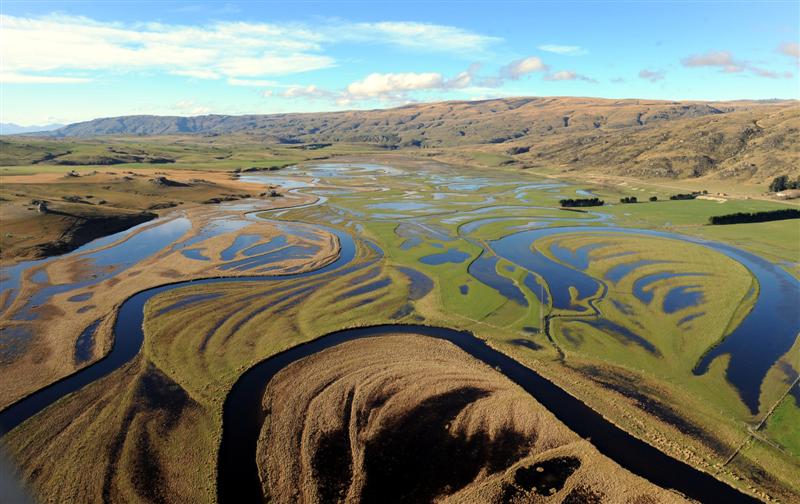
The Colmar-Brunton poll undertaken on behalf of Fish & Game fishing and hunting lobby found 82 percent of those surveyed were either "extremely or very concerned" about freshwater pollution.
This was higher than the 80 percent who said they were very concerned about New Zealand's cost of living.
Fish & Game New Zealand chief executive Martin Taylor said Kiwis were worried they were "losing their ability to swim, fish and gather food from their rivers, lakes and streams".
"People see those activities as their birthright, but over the last 20 years that right is being lost because the level of pollution in waterways has increased as farming intensifies," he said.
He said while most farmers were making changes to how they used the land and how this polluted waterways, there were still a significant number of "laggards" not cleaning up their act.
However, DairyNZ chief executive Tim Mackle said farmers were already doing their bit to clean up waterways.
He said 97 percent of waterways on dairy farms were now fenced off to keep animals away.
Farmers had also invested heavily in "effluent management systems" over the last decade, while DairyNZ continues to invest millions of dollars into research, science and technology that will look after waterways, he said.
"The reality is that all types of land use contribute to water quality – and that farming, whether it's vegetables, fruit, beef, sheep, dairy, deer or even wine – must all work together to make sure waterways are protected," Mackle said.
"The most polluted rivers actually run through urban centres, and this is where the public can do their bit too."
Federated Farmers environment spokesman Chris Allen said he was pleased the poll showed Kiwis have an interest in water quality, although he thought the questions were "slightly loaded".
Federated Farmers had been working with scientists and local Governments to put out accurate and easy-to-understand information about water quality across the country.
"And we are actually starting to see some really encouraging results that water quality is improving, and if we weren't all taking it seriously - whether that is urban or rural - then we wouldn't be seeing those results," he said.
The poll comes as the latest Government assessment showed levels of E.coli - a bacteria linked to animal or human faeces that can leave swimmers vomiting and suffering diarrhoea - weren't going up or down at most waterway sites.
But, when compared with the relatively unspoiled waterways that flow through native wilderness areas, levels were 22 times higher in towns and cities, and nearly 10 times higher in the pastoral countryside.
The review found that between 1994 and 2013 - a period in which booming milk sales led to intensified diary farming - the levels of nitrate-nitrogen in monitored rivers got worse (55 percent) at more sites than at sites where it improved (28 percent).
Three-quarters of monitored native fish species were also nearing extinction, and 90 percent of our natural wetlands have been wiped out, along with an untold number of plants and animals that depended upon them.
Freshwater scientists have singled out the loss of sediments into waterways - harming streambed habitats and filling surface water with extra nutrients - as another big problem.
City streams, suffering from the added impact of heavy metals, were the most polluted of any but ultimately remained a small proportion of our freshwater network.
Fish & Game's Martin Taylor said his group's recent poll showed ordinary Kiwis had become fed up with the lack of action over cleaning up waterways.
He said those farmers who did not act fast enough needed to be forced to change.
"This means regional and district councils have to toughen the rules, enforce them and stop making excuses for the environmentally destructive and irresponsible farmers in their areas," he said.
The Colmar Brunton poll surveyed 1000 Kiwis across the country between December 5-12.
It asked participants whether they were concerned by issues, including freshwater pollution, the cost of living, the health system, climate change, housing, education and child poverty.













